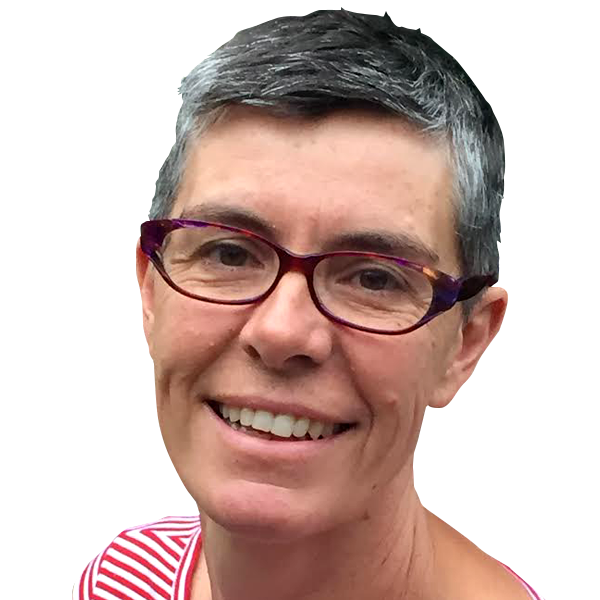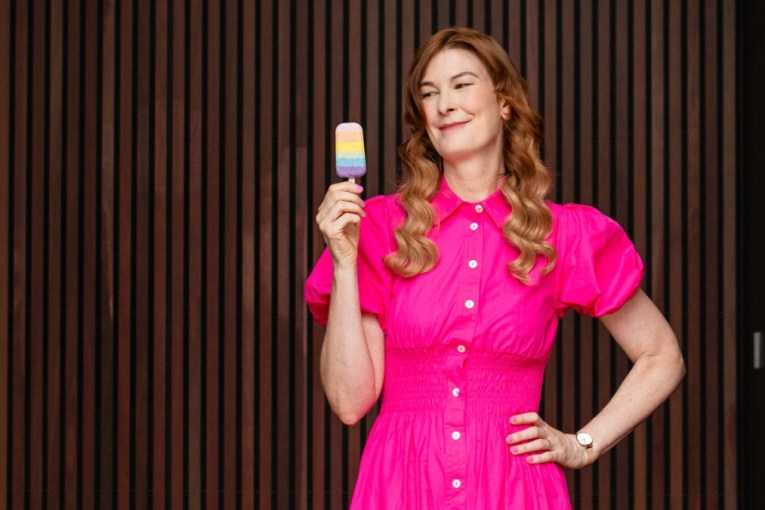‘He wanted to know whatever the outcome’: My husband’s impossible choice


"There’s no judgement on those who choose differently: who could blame them?" says Michelle Fincke. Photo: Getty
On the February day scientists announced a pioneering breakthrough in the fight for a cure for Alzheimer’s, I was at the funeral of a dear friend’s mum. It’s sad but beautiful when family defiantly reclaim their loved one and restore the rich texture of a life ravaged – but never erased – by dementia.
The research team has developed a blood test that can predict whether you are likely to develop the slippery, insidious Alzheimer’s up to 20 years before symptoms appear.
And yet, stories heralding the breakthrough couldn’t ignore the utterly human question lurking beneath the science: Would you volunteer for a medical test for a devastating condition when, right now, there’s no cure?
My husband Michael did just that. Some years back, he gazed, clear-eyed and gutsy, into the crystal ball and had a test for a fatal genetic condition, knowing there was not, and still is not, a cure.
The start of this strange, terrible chapter in our lives seemed so benign. Michael’s half-brother came for a visit. Single, childless and in his early 40s, he seemed nice, if a bit quirky.
I’d get to know him, I figured, in the years to come. But I never got to know him. Within a few months, we were clearing out his house, hunting for clues as to what had made him sunken-eyed, malnourished and too mentally unstable to care for himself.
Paul, 42, had early onset dementia. The brusque advice was to put him into a nursing home, where the disease galloped off with his mind and memories in months.
And then, suddenly, he stopped walking. This was unusual and, finally, we had a doctor’s attention: would we consent to further tests?
Which was how we found ourselves in a bland medical office with a smart, kindly specialist, telling us a terrible story.
Michael and Paul’s father died in his sixties after a short, brutal wrestle with a degenerative disease. A slide of his brain tissue had been preserved to illustrate the condition Creutzfeldt Jakob Disease (CJD). And Paul’s tests had returned the same result.
Coincidence? Unfortunately, no. They confirmed it was the rare, genetic form of the disease sometimes referred to as ‘Mad Cow’. Which meant Michael’s chance of having the deadly gene was one in two.
A coin toss.
Which meant, then, that if he had the gene, the odds would be the same for our children. Fifty-fifty. I remember absently watching my 18-month old, sitting on a rug at my feet, gnawing on his teething ring. I was 15 weeks’ pregnant with our second child.

Michael and his little boys, Truman, left, and Henry. Photo: Supplied
From that instant, Michael could not obtain life insurance, and there were other consequences. The decent, compassionate medical team we spoke to told us the condition afflicted about five families in Victoria.
Doctors could offer an annual cognition test, to give us a little time to get our affairs in order before Michael’s mind went to mush. That was it. No treatment was available.
Visits to Paul, who died less than three years after the diagnosis, became even more distressing: would this be Michael, now mid-30s, in five years’ time? In two years’ time? The disease might never manifest itself, or it might devour a child unlucky enough to be a carrier.
And then, Michael was offered a test for the rogue gene: did he want to know the future, definitively? A future that, once seen, couldn’t be unseen?
If he hesitated, I didn’t notice. He wanted to know, whatever the outcome. We had kids and he needed a plan.
Our medical experts fully understood what happens when screening outstrips treatment. We were counselled carefully, with compassion, in the long weeks between blood test and result.
And then we found ourselves in a tiny, blank room with a box of tissues on the table, counsellors pensively clutching an envelope. Not even they knew the result; we’d all find out our fate at the very same moment.
Everyone’s hands and voices were shaking. Zero small talk.
The result was negative.
The evil gene was gone. It couldn’t reappear in our children.
Everyone cried with relief and for a long time we sat, shaking, in the park next to the Royal Children’s Hospital.
In the subsequent years many things have happened to us, as you’d expect: two, in particular, are worth mentioning. The day after the result we went on a Queensland holiday – planned as either a celebration or to remind us to keep living – and decided to try for one more baby.
We got twins.
And, as we got all four children to primary school and the pace of our lives let up just a little, Michael got stage four cancer. Wholly unrelated to CJD. Just one of those things.

Michael, Henry, Truman, Michelle, Edith and Joni at Christmas 2017. Photo: Supplied
He survived that too, thanks to the powerful base of medical research informing some aggressive treatment.
And so it will be, I hope, for those tested for Alzheimer’s. Life will go on – joys, sorrows, multiple births – and death won’t necessarily be from dementia anyway.
But a couple of decades of dedicated, quality research might mean that, when it comes, each of us will get to take our lifetime’s glorious memories with us after all.








